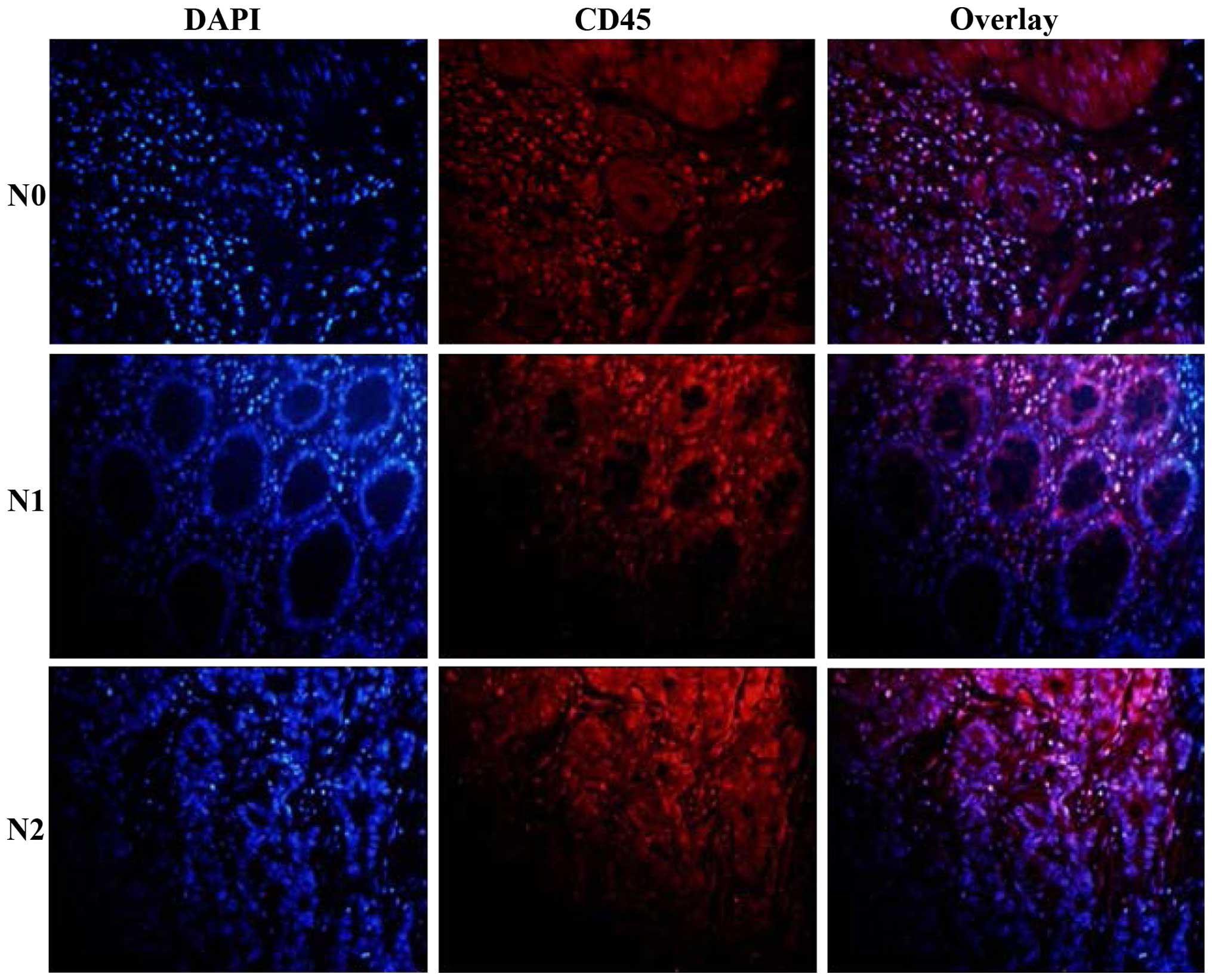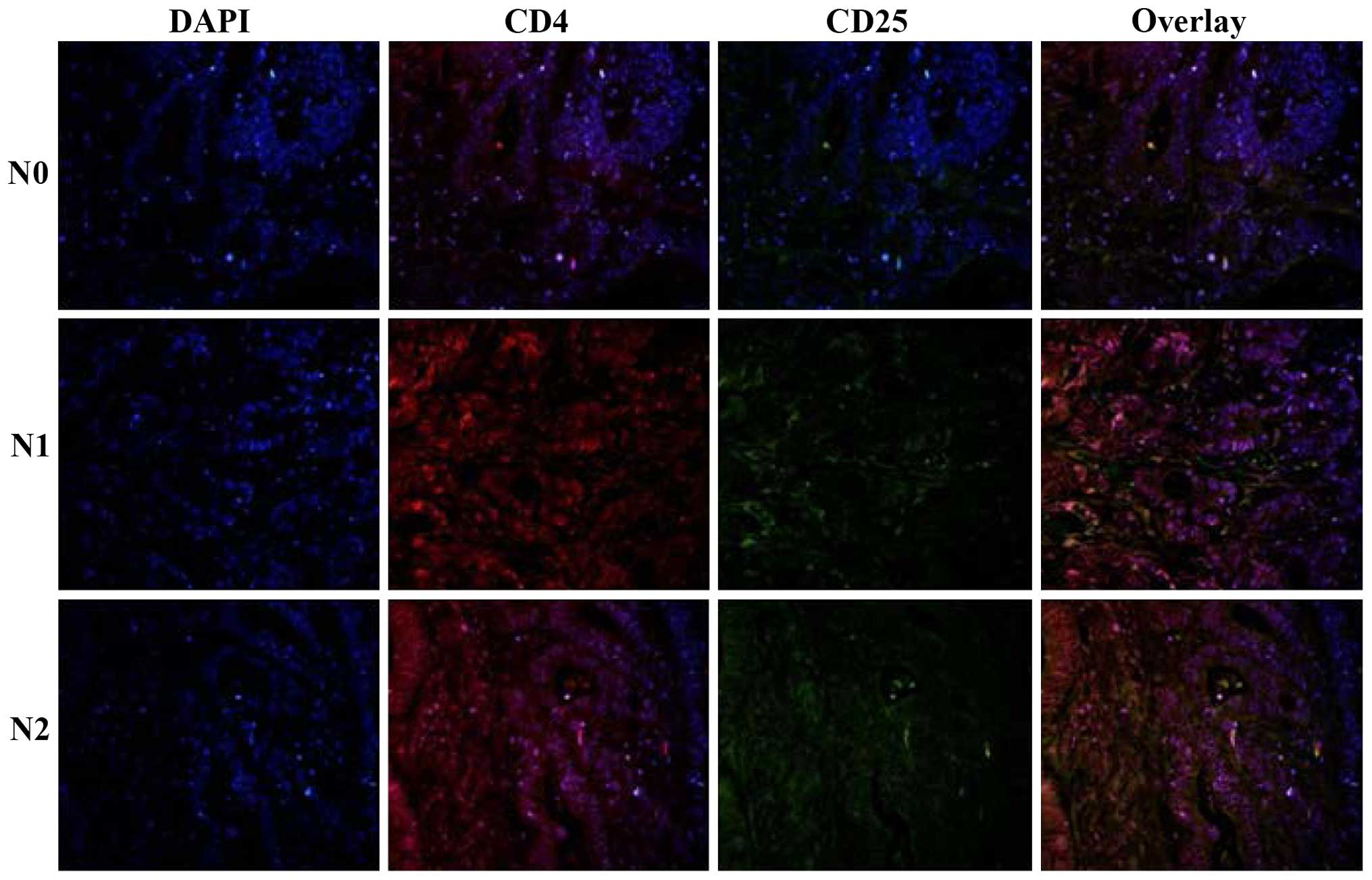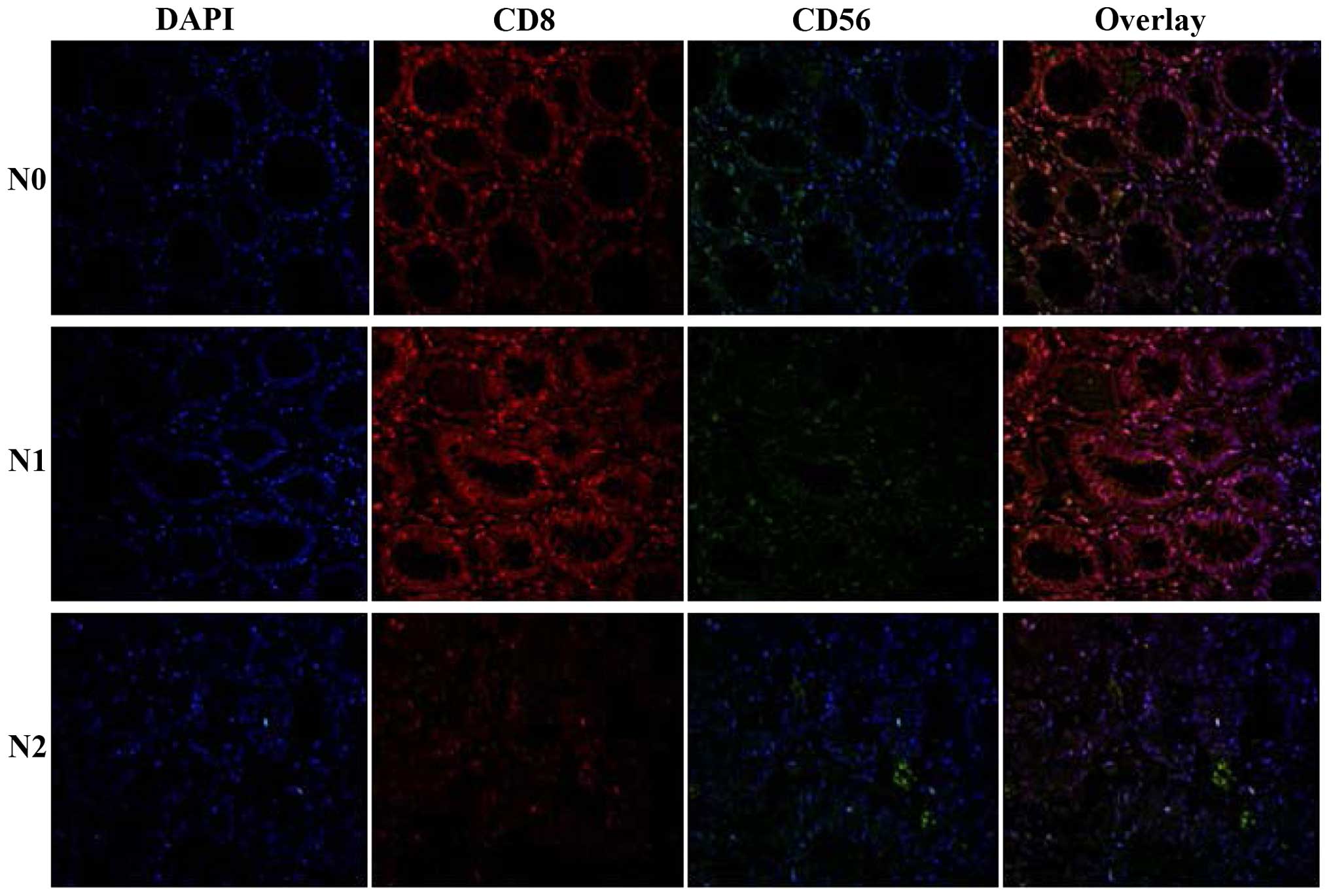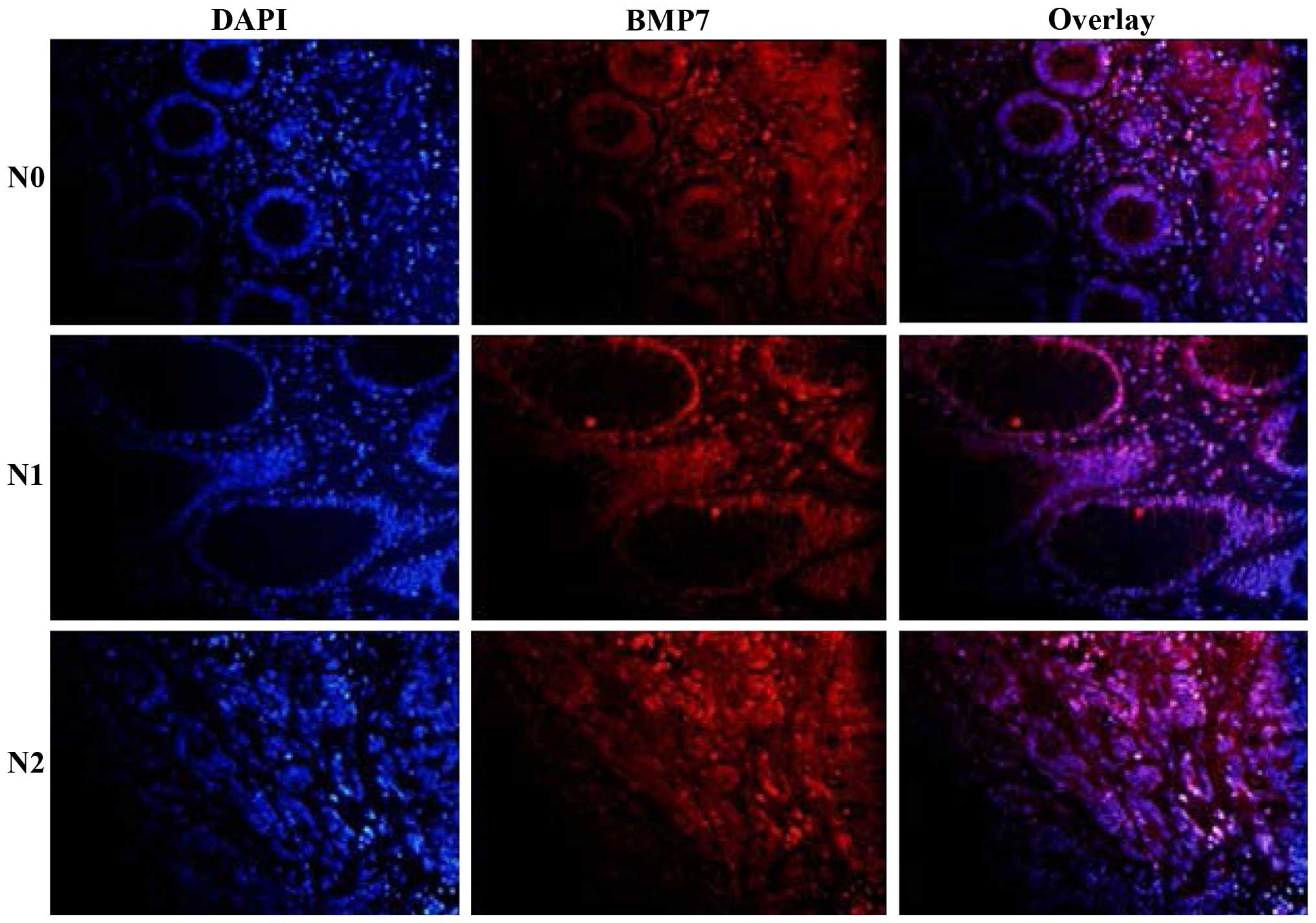|
1
|
Mantovani A, Allavena P, Sica A and
Balkwill F: Cancer-related inflammation. Nature. 454:436–444. 2008.
View Article : Google Scholar : PubMed/NCBI
|
|
2
|
Porta C, Larghi P, Rimoldi M, Totaro MG,
Allavena P, Mantovani A and Sica A: Cellular and molecular pathways
linking inflammation and cancer. Immunobiology. 214:761–777. 2009.
View Article : Google Scholar : PubMed/NCBI
|
|
3
|
Solinas G, Marchesi F, Garlanda C,
Mantovani A and Allavena P: Inflammation-mediated promotion of
invasion and metastasis. Cancer Metastasis Rev. 29:243–248. 2010.
View Article : Google Scholar : PubMed/NCBI
|
|
4
|
Zou W: Regulatory T cells, tumour immunity
and immunotherapy. Nat Rev Immunol. 6:295–307. 2006. View Article : Google Scholar : PubMed/NCBI
|
|
5
|
Speetjens FM, Lauwen MM, Franken KL, van
Janssen Rhijn CM, van Duikeren S, Bres SA, van de Velde CJ, Melief
CJ, Kuppen PJ, van der Burg SH, et al: Prediction of the
immunogenic potential of frameshift-mutated antigens in
microsatellite instable cancer. Int J Cancer. 123:838–845. 2008.
View Article : Google Scholar : PubMed/NCBI
|
|
6
|
Curiel TJ: Tregs and rethinking cancer
immunotherapy. J Clin Invest. 117:1167–1174. 2007. View Article : Google Scholar : PubMed/NCBI
|
|
7
|
Disis ML, Bernhard H and Jaffee EM: Use of
tumour-responsive T cells as cancer treatment. Lancet. 373:673–683.
2009. View Article : Google Scholar : PubMed/NCBI
|
|
8
|
Schmoll HJ, Van Cutsem E, Stein A,
Valentini V, Glimelius B, Haustermans K, Nordlinger B, van de Velde
CJ, Balmana J, Regula J, et al: ESMO Consensus Guidelines for
management of patients with colon and rectal cancer. a personalized
approach to clinical decision making. Ann Oncol. 23:2479–2516.
2012. View Article : Google Scholar : PubMed/NCBI
|
|
9
|
Adam R, De Gramont A, Figueras J, Guthrie
A, Kokudo N, Kunstlinger F, Loyer E, Poston G, Rougier P,
Rubbia-Brandt L, et al: Jean-Nicolas Vauthey of the EGOSLIM (Expert
Group on OncoSurgery management of LIver Metastases) group: The
oncosurgery approach to managing liver metastases from colorectal
cancer: a multidisciplinary international consensus. Oncologist.
17:1225–1239. 2012. View Article : Google Scholar : PubMed/NCBI
|
|
10
|
Siena S, Sartore-Bianchi A, Di
Nicolantonio F, Balfour J and Bardelli A: Biomarkers predicting
clinical outcome of epidermal growth factor receptor-targeted
therapy in metastatic colorectal cancer. J Natl Cancer Inst.
101:1308–1324. 2009. View Article : Google Scholar : PubMed/NCBI
|
|
11
|
Alarmo EL, Rauta J, Kauraniemi P, Karhu R,
Kuukasjärvi T and Kallioniemi A: Bone morphogenetic protein 7 is
widely overexpressed in primary breast cancer. Genes Chromosomes
Cancer. 45:411–419. 2006. View Article : Google Scholar : PubMed/NCBI
|
|
12
|
Miyazaki H, Watabe T, Kitamura T and
Miyazono K: BMP signals inhibit proliferation and in vivo tumor
growth of androgen-insensitive prostate carcinoma cells. Oncogene.
23:9326–9335. 2004. View Article : Google Scholar : PubMed/NCBI
|
|
13
|
Beck SE, Jung BH, Del Rosario E, Gomez J
and Carethers JM: BMP-induced growth suppression in colon cancer
cells is mediated by p21WAF1 stabilization and modulated by
RAS/ERK. Cell Signal. 19:1465–1472. 2007. View Article : Google Scholar : PubMed/NCBI
|
|
14
|
Aoki M, Ishigami S, Uenosono Y, Arigami T,
Uchikado Y, Kita Y, Kurahara H, Matsumoto M, Ueno S and Natsugoe S:
Expression of BMP-7 in human gastric cancer and its clinical
significance. Br J Cancer. 104:714–718. 2011. View Article : Google Scholar : PubMed/NCBI
|
|
15
|
Fleming ID, Cooper J, Henson DE, Hutter
VPR, Kennedy BJ, Murphy GP, O'Sullivan B, Sobin LH, Yarbro JW, et
al: AJCC cancer staging manual (5th). Philadelphia, PA:
Lippincott-Raven. 1997.
|
|
16
|
Rodriguez-Martinez A, Alarmo EL, Saarinen
L, Ketolainen J, Nousiainen K, Hautaniemi S and Kallioniemi A:
Analysis of BMP4 and BMP7 signaling in breast cancer cells unveils
time-dependent transcription patterns and highlights a common
synexpression group of genes. BMC Med Genomics. 4:802011.
View Article : Google Scholar : PubMed/NCBI
|
|
17
|
Huh JW, Park YA, Jung EJ, Lee KY, Kwon JE
and Sohn SK: Complete remission of unresectable colon cancer after
preoperative chemotherapy selected by adenosine triphosphate-based
chemotherapy response assay. J Korean Med Sci. 23:916–919. 2008.
View Article : Google Scholar : PubMed/NCBI
|
|
18
|
Sorbye SW, Kilvaer T, Valkov A, Donnem T,
Smeland E, Al-Shibli K, Bremnes RM and Busund LT: Prognostic Impact
of Lymphocytes in Soft Tissue Sarcomas. PLoS One. 6:e146112011.
View Article : Google Scholar : PubMed/NCBI
|
|
19
|
Motoyama K, Tanaka F, Kosaka Y, Mimori K,
Uetake H, Inoue H, Sugihara K and Mori M: Clinical significance of
BMP7 in human colorectal cancer. Ann Surg Oncol. 15:1530–1537.
2008. View Article : Google Scholar : PubMed/NCBI
|
|
20
|
Megumi K, Ishigami S, Uchikado Y, Kita Y,
Okumura H, Matsumoto M, Uenosono Y, Arigami T, Kijima Y, Kitazono
M, et al: Clinicopathological significance of BMP7 expression in
esophageal squamous cell carcinoma. Ann Surg Oncol. 19:2066–2071.
2012. View Article : Google Scholar : PubMed/NCBI
|


















